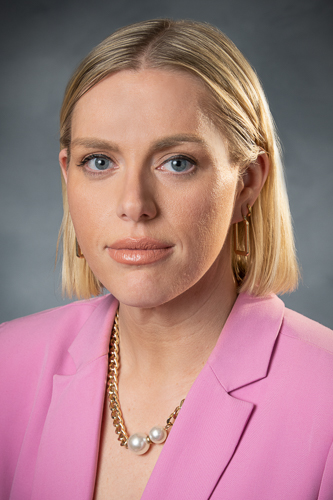
NCEL Blog
Women’s History Month 2023: Women Lawmakers Working for a Healthier Planet
March 8, 2023
Overview
March is National Women’s History Month, a time to celebrate the countless and invaluable contributions women have made to American history despite facing ongoing and systemic inequities. NCEL is taking time this month to reflect on women leadership in government and the environmental movement, and to highlight some groundbreaking women legislators in the NCEL network.
Women Are Environmental Leaders, Despite Gender Disparities
Women across the globe face unequal rights to land, underrepresentation in natural resource management, persistent gender-based violence, and higher burdens from climate change and the biodiversity crisis. Despite these challenges, women are prominent and crucial global leaders on environmental solutions such as climate action, environmental justice, and biodiversity conservation. It is essential that lawmakers at all levels in the United States work to include and consider women in environmental policymaking, while mitigating larger inequitable systems of power.
Women Are Among the Most Effective Policymakers, Despite Underrepresentation
The trends of women experiencing disproportionate environmental burdens are reinforced by limited representation in government. While making up 50.5% of the U.S. population, women currently occupy under 34% of all U.S. state legislative seats, with legislative leadership positions still heavily dominated by men. This massive gender imbalance at the state and federal levels means that the vital perspectives, interests, and expertise of women are not fully represented in policymaking. But regardless of underrepresentation, research shows that female legislators in the U.S. Congress are more successful policymakers – on average, women sponsor more bills, pass more laws, and send more money to their districts.
Women Lawmakers Working on Environmental Policy and a Just Future
Considering the environmental leadership and exceptional policymaking of women, here are some groundbreaking women in the NCEL network who are working in their states to overcome gender injustice and ensure a healthy environment for all.

Kayla Young, West Virginia State Delegate
“For me it’s important to always celebrate women, but I am glad there is a month dedicated to learning about women that history has erased or never given their due credit. We know this is particularly true for Black and Brown women and we should use the month, and every month, to reflect on how critical women are to our society.”
Full Q&A
What does Women’s History Month mean to you?
For me it’s important to always celebrate women, but I am glad there is a month dedicated to learning about women that history has erased or never given their due credit. We know this is particularly true for Black and Brown women and we should use the month and every month, to reflect on how critical women are to our society.
What environmental issue(s) are you particularly passionate about and how have you worked in the legislature to address this issue?
I’ve worked on a range of issues from protecting clean water to expanding solar accessibility to grid stabilization and FERC governance.
Why is it important to have more women lawmakers in the future?
With more representation, issues that affect women disproportionately are addressed and taken seriously. My state is in last place for women as a percentage of the legislative body and it’s evident in the policies we pass. With more women, women are heard and listened to.

Khanh Pham, Oregon State Representative
“As a Vietnamese-American woman, mother, working class daughter of immigrants, partner, legislator, advocate, and organizer, Women’s History Month is a time to celebrate all the parts of my identity which shape my vision. Women’s History Month for me is a time to learn about, reflect on, and build on the legacies of the many mothers and aunties, sisters and siblings, ancestors of all genders who fought for a more just world for us, and to reflect on what we can do to continue to contribute to building a better future for my daughter and all our children.”
Full Q&A
What does Women’s History Month mean to you?
As a Vietnamese-American woman, mother, working class daughter of immigrants, partner, legislator, advocate, and organizer, Women’s History Month is a time to celebrate all the parts of my identity which shape my vision. Women’s History Month for me is a time to learn about, reflect on, and build on the legacies of the many mothers and aunties, sisters and siblings, ancestors of all genders who fought for a more just world for us, and to reflect on what we can do to continue to contribute to building a better future for my daughter and all our children.
What environmental issue(s) are you particularly passionate about and how have you worked in the legislature to address this issue?
As a mother of an eight-year-old, I am deeply concerned for the futures of our youth in the face of an intensifying climate crisis. My work is rooted in climate justice and a vision for a safe, healthy, and stable future for all of our children. During my first long session, I passed legislation that set bold greenhouse gas emission reduction targets in our energy sector. This win was big, but there is more work to be done. I believe that transportation is the next pillar of the Green New Deal, and am working to decarbonize and transform our state’s transportation system to serve all of our communities.
Why is it important to have more women lawmakers in the future?
The status quo is not serving our communities. It is past time that our leaders better represent the diverse communities that they serve. I believe a truly representative government will include more BIPOC, queer, working parent, low-income, immigrant, young, women leaders– people whose voices have historically been silenced by the most powerful in our society. I am inspired by the work of my fellow legislators who fight for their communities every day. Our voices are powerful, and I look forward to uplifting and supporting more women into positions of leadership across all levels of government.
NCEL’s Commitment to Gender Equity
At NCEL, we are committed to supporting more equitable gender representation by embedding diversity, equity, and inclusion in every aspect of our work. Internally, three of our four program areas are female-led, and we continue to provide individual and organization-wide learning opportunities on gender equity, among other topics, through our Diversity, Equity, and Inclusion (DEI) Task Force. Externally, NCEL staff is committed to embedding topics of equity, including gender justice, into all the research and education we provide for our nationwide network of legislative champions.